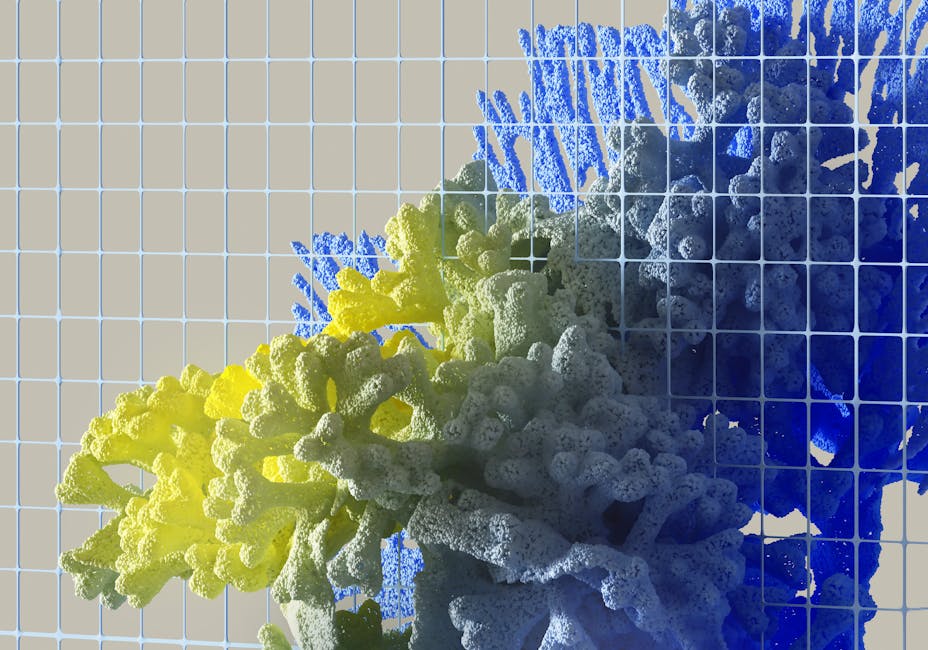Understanding the Ethics of Emerging Technologies
You’re diving into the Wild West of emerging tech, where innovation meets moral mayhem. AI’s getting scarily smart, gene editing’s designing humans, and quantum computing’s about to crack your digital vault. And then there’s the dark side: biassed algorithms, surveillance capitalism, and digital addiction. But hey, you can’t have progress without some moral panic, right? The real question is, are we creating a utopia or a dystopia? You’re about to enter a world where the line between progress and peril is constantly blurring – and you’re just getting started.
Key Takeaways
• Emerging technologies like AI, gene editing, and quantum computing raise complex ethical concerns that must be addressed to prevent unintended consequences.• Biases in AI and machine learning can perpetuate discrimination, stereotyping, and unfair treatment, emphasising the need for Algorithmic Fairness and Human Oversight.• Responsible tech development requires consideration of moral implications, value alinement, and contextual consideration to ensure technology serves humanity, not the other way around.• The dark side of innovation, including surveillance capitalism, biassed AI, and digital addiction, must be acknowledged and mitigated through responsible design and ethics in design.• Human-centric design prioritises empathy, dignity, and understanding, focussing on creating solutions that genuinely improve people’s lives and respect users’ time and attention.
The Ethics of Artificial Intelligence

As you welcome Alexa into your home, AI’s creepy ability to learn your habits and preferences raises the question: are you the master, or is AI slowly pulling the strings? It’s like having a super-smart, über-observant roommate who never forgets – or forgets to judge you. But hey, at least Alexa doesn’t leave the toilet seat up.
On a more serious note, AI’s rapid advancement has sparked concerns about its potential consciousness. Will we soon be dealing with sentient machines? If so, do we grant them rights, or are they just fancy appliances?
The ethics get murkier when we consider autonomous weapons, where AI makes life-or-death decisions without human oversight. It’s like giving a toddler access to a nuclear button – not exactly reassuring.
The prospect of AI-powered killing machines raises questions about accountability and the blurred lines between human and machine responsibility. Are we comfortable with the idea of AI making moral judgements, even if it’s just in the heat of battle?
As you enjoy your smart home’s convenience, remember that AI’s capabilities are a double-edged sword. It’s time to ponder the implications of creating intelligent machines that might just surpass us – and our moral compass.
Gene Editing’s Moral Dilemmas

You’re about to become the ultimate architect of life, courtesy of gene editing‘s incredible precision, but with great power comes great moral ambiguity. With the ability to tweak the human genome, you’ll be faced with decisions that’ll make you question the very fabric of humanity.
Imagine being able to create ‘designer babies‘ – kids tailored to your exact specifications, complete with blue eyes, blonde hair, and a genius-level IQ. Sounds like a dream come true, right? But hold up, because this is where things get murky.
Would you be playing God, or simply giving your kid the best possible start in life? And what about the not-so-lucky ones who can’t afford these genetic upgrades? The concept of Genetic Justice comes into play here – are we creating a world where only the privileged few get to reap the benefits of gene editing?
And let’s not forget the unintended consequences. What if we accidentally introduce a fatal flaw into the gene pool? Or, worse, create a class system where the genetically modified are considered superior? The moral dilemmas are endless, and the responsibility is overwhelming.
As you set out on this journey of gene editing, remember that the power to shape humanity’s future is in your hands – use it wisely.
Quantum Computing’s Cyber Risks

Quantum computing’s exponential processing power may have you swooning, but don’t get too comfy – its unprecedented speed also means cyber attacks will be faster, stealthier, and more devastating than ever.
You might be thinking, ‘What’s the big deal? We’ve got encryption, don’t we?’ Well, yes and no. Quantum computing can potentially break many of today’s encryption methods, leaving your sensitive data vulnerable to cybercriminals.
-
Faster decryption: With quantum computing, hackers can crack encryption codes in a fraction of the time it takes today, giving them access to your sensitive information.
-
New attack vectors: Quantum computers can launch novel types of cyber attacks that are currently impossible, making it even harder to defend against them.
-
Quantum-enabled espionage: Nation-states and malicious actors can use quantum computing to launch stealthy cyber attacks, making it difficult to detect and attribute the attacks.
-
Risks to critical infrastructure: Quantum computing can be used to disrupt critical infrastructure, such as power grids and financial systems, with devastating consequences.
The silver lining? Quantum computing also enables the development of Quantum Encryption, an ultra-secure method of encrypting data that’s virtually unbreakable. But that’s a topic for another time. For now, be aware that the cyber warfare landscape is about to change dramatically, and it’s time to prepare for the quantum era.
Bias in Emerging Technologies

By the time emerging technologies like AI and machine learning hit the market, they’ve often already been tainted by biases that can perpetuate discrimination, stereotyping, and unfair treatment. You might think it’s just a glitch, but these biases can have real-world consequences, affecting everything from job interviews to healthcare outcomes.
So, where do these biases come from? Sometimes, they’re baked into the algorithms themselves, reflecting the biases of their creators or the data they’re trained on. Other times, they emerge from a lack of human oversight, allowing discriminatory patterns to perpetuate themselves.
The result? AI systems that can amplify existing social inequalities, rather than helping to mitigate them.
That’s why Algorithmic Fairness is becoming a major concern in the development of emerging technologies. It’s not just about creating systems that are more accurate or efficient; it’s about ensuring they’re fair, transparent, and accountable.
Human Oversight is essential here, as it allows us to identify and correct biases before they cause harm. By prioritising fairness and oversight, we can create emerging technologies that truly serve everyone, not just a privileged few.
The Dark Side of Innovation

As we celebrate the wonders of emerging tech, let’s not forget that innovation’s dark underbelly is always lurking, waiting to pounce – and it’s about time we acknowledged the sinister potential hiding behind the flashy interfaces and sleek designs.
You know, the stuff that keeps you up at nite, wondering if we’ve set loose a monster upon the world.
The truth is, innovation can be a double-edged sword. For every problem it solves, it creates a new set of unintended consequences.
And let’s be real, who hasn’t heard the phrase ‘moral ambiguity’ thrown around like a hot potato in tech circles? It’s like, hello, we’re playing with fire here!
Surveillance capitalism: You know, when companies use your data to manipulate and control you. Yeah, that’s not creepy at all.
Biassed AI: Because who needs fairness and equality when you can perpetuate systemic racism and sexism?
Unregulated experimentation: Who needs ethics committees when you can just wing it and hope for the best?
Digital addiction: Because what’s a little social media-induced anxiety and depression between friends?
Responsible Tech Development Matters

You’re probably thinking, ‘Responsible tech development? Sounds like a no-brainer, right?’
But let’s get real – we’ve all seen how quickly ‘innovation’ can turn into ‘exploitation’ when profit is the primary driver.
Ethics in Design
You’re about to release a creation on the world, and it’s high time you considered the moral implications of your design decisions. Newsflash: your tech isn’t neutral, and its impact will be felt far beyond your coding cave. As you design, remember that ethics in design isn’t just a nice-to-have, it’s a must-have. Your creation will either empower or disenfranchise, so choose wisely.
Value alinement: Verify that your tech alines with human values like fairness, transparency, and accountability.
Moral frameworks: Establish a moral compass to guide your design decisions, considering potential consequences and trade-offs.
Contextual consideration: Design with the user’s context in mind, acknowledging the complexities of real-world scenarios.
Humility and iteration: Recognise the limitations of your creation and be willing to adapt and improve as you learn from its impact.
Human-Centric Approach
By putting humans at the forefront of your design process, you’re not only doing the right thing, but you’re also guaranteeing that your tech will be useable, accessible, and maybe – just maybe – won’t end up on the scrap heap of history.
It’s time to ditch the ‘tech for tech’s sake’ approach and focus on creating solutions that genuinely improve people’s lives.
A human-centric approach means prioritising Design Imperatives that aline with Human Values.
It’s about recognising that technology should serve humanity, not the other way around.
By doing so, you’ll create products that are intuitive, inclusive, and respectful of users’ time and attention.
It’s not about creating flashy features or chasing the latest trends; it’s about crafting experiences that foster empathy, dignity, and understanding.
So, put humans first, and you’ll be amazed at how your tech will thrive as a result.
Anything less, and you might as well be designing for the dumpster.
Conclusion
As you gaze into the abyss of emerging tech, the abyss gazes back, its darkness reflected in the mirror of your conscience.
The ghosts of bias, cyber threats, and moral dilemmas lurk in every line of code, every gene edit, and every quantum leap.
So, will you be the torchbearer of responsible innovation, or just a pawn in the game of technological roulette?
The choice is yours, but remember, the future is watching, and it’s not impressed.
Contact us to discuss our services now!


